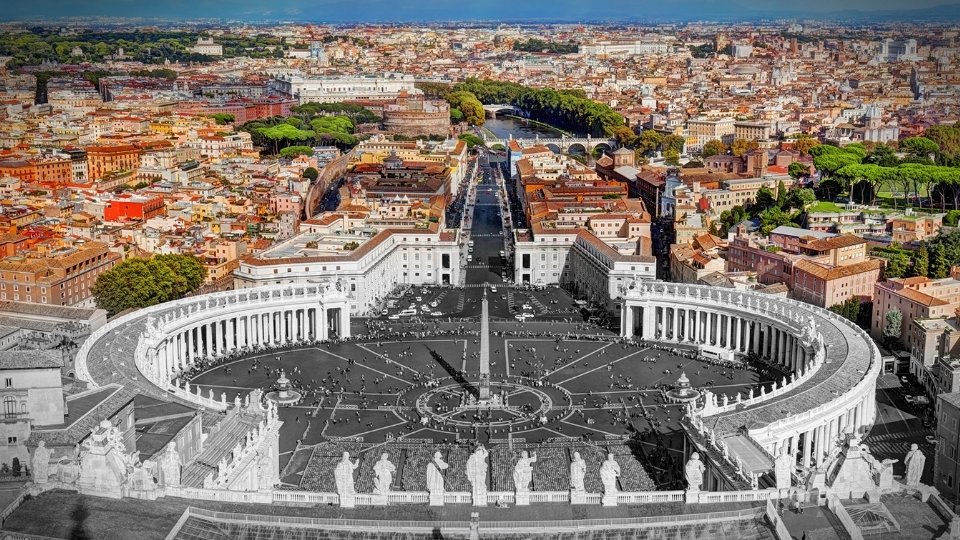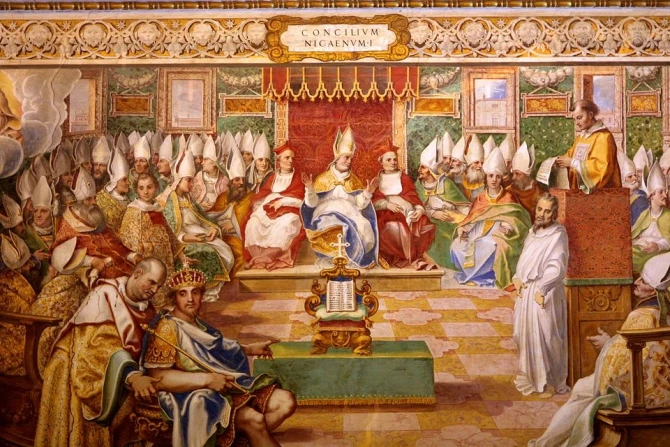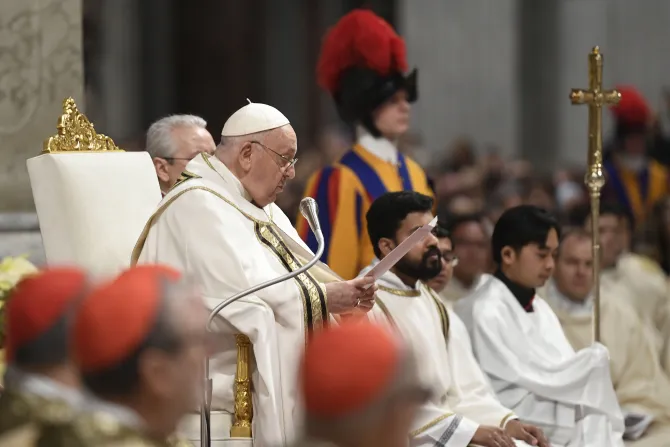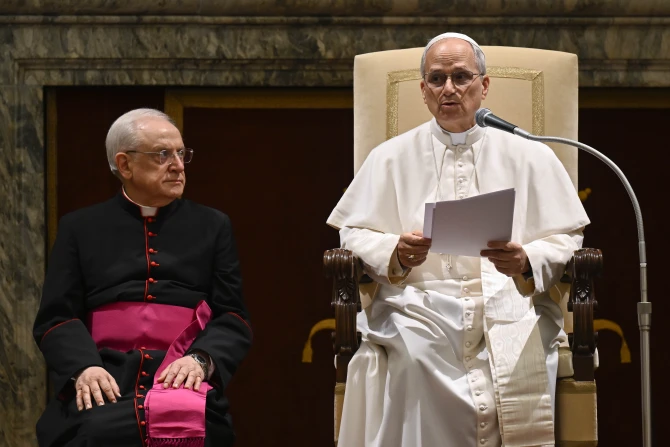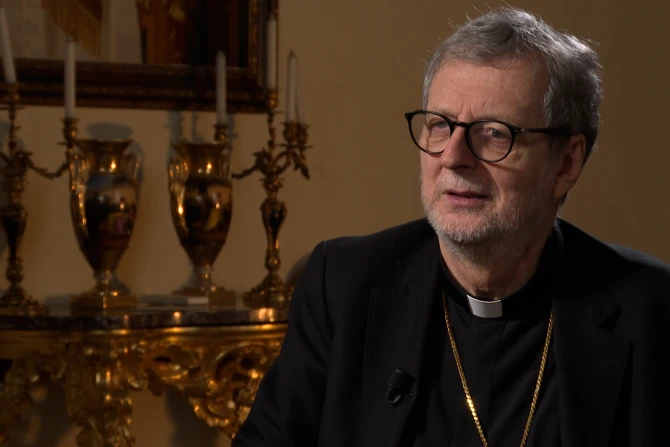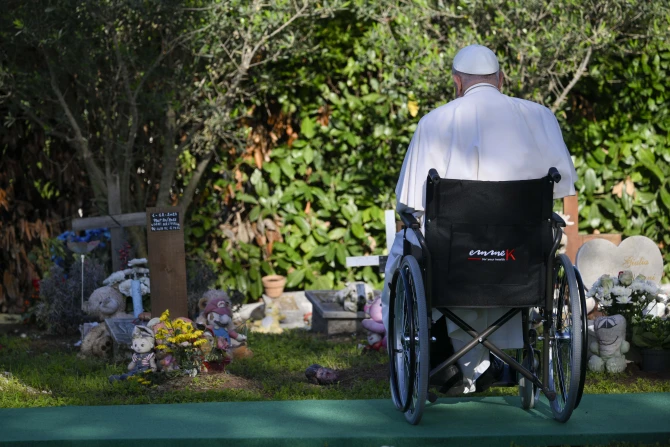In the wake of one of the most historic transitions the Church has seen in recent decades, Cardinal Michael Czerny, Prefect of the Dicastery for Promoting Integral Human Development, sits down with EWTN News President and COO Montse Alvarado to reflect on the election of Pope Leo XIV. From the emotional farewell to Pope Francis to the solemn oath taken under Christ’s gaze in the Sistine Chapel, Cardinal Czerny offers a candid look inside the conclave. In this wide-ranging interview, he discusses the new pontiff’s vision, the theological role of the Holy Spirit in papal elections, and the pressing challenge of work in today’s world.
SIGN UP FOR OUR NEWSLETTER HERE
Cardinal Czerny it’s a pleasure to be here with you, especially in this momentous occasion. Now that we have a new Holy Father, Pope Leo the 14th, how did it feel going through this process you’ve been running since the late Pope Francis was in the hospital in February?
Well, it’s hard to believe all of that has happened in a relatively short time, in some ways, it’s too much to absorb as you’re living it. I guess I’ll absorb it over the years. On the other hand, we’re so happy now that the suffering and the confusion and the darkness faded away.
How did it feel when you put your hand on the Gospel and swore that oath?
Well, it was. It was a solemn moment, and you know Christ, our judge, was looking down at me from in the Sistine Chapel. So, it’s not just you and the Bible. There’s also the Lord Jesus, the judge.
I do want to ask a question about the Americanness of our new Holy Father. In the description that one could glean from the notes that were given out of the general congregations, there were individual highlights: someone who had an expertise in Canon law and understanding of the global church diplomacy, a heart for evangelization. When you think about the choice that was made, were you trying to check all those boxes?
Yes, I guess the reports give that impression, because they have to talk about something, but we’re not checking boxes. We’re trying to get a sense of who can lead the Church in our mission of evangelization, beginning in 2025. The successor of Peter in 2025.
It was beautiful to see (the next day) in the homily how the Holy Father thanked you all and said: “For the choice that you have made, the Holy Spirit put me here through the choice that you made.” There was a lot of confusion about whether this was a choice that the Holy Spirit makes, or that the Cardinals make themselves. How would you explain from a theological understanding of what happened in that room?
Yes, I would say what happens in the room and it’s similar to what happens in the Synod, is that the Holy Spirit is very active and each of us is doing our human best. So, there’s a cooperation. We are not his puppets. We’re not, we’re not his “yes men”. He is active, inspiring, guiding, nudging… I don’t know how he describes what he does, but he does it very well. And meanwhile we do our very best humanly, spiritually, fraternally and so on.
When we think about the interactions that you’ve had with then Prefect, then Cardinal Prevost, how would you characterize him? Is he funny? Is he kind? For those who don’t know him at all.
He’s great. He’s all of those. He’s funny. He’s kind, he’s serious, he’s very dedicated. Every meeting I’ve come to he’s arrived very well prepared, has contributed… He’s great.
Pope Leo made a very specific choice in the name that he chose. Can you explain how that is going to affect the greater issue of migration which we know is divisive and one that the Church must confront?
The way he’s going to do it is exactly the opposite of what you said. In other words, work is a greater issue than migration. Work affects most of us, except those who are so rich that they cannot work and they just don’t work. But, most of us have to earn our living and for many of us that is a real challenge. And I’m not saying us Americans, I’m saying us around the world.
I don’t know if you can find a society where work is not a problem, an increasing problem, and indeed a dramatic problem. The innovations and inventions which, nearly all of which, replace human workers with some kind of other form of energy use, if you want to call that, that’s a challenge for everyone, everywhere.
Education is also much affected by this. Big change in the prospects of work. So work includes migration. Some people migrate because of work issues, but even those who, let’s say, migrate because of security issues, or human rights violations, or persecution, they also have to face the issue of work, if they don’t find work in the new society to which they arrive, they’re going to be very miserable. They’re not going to flourish as they should and as God calls them to.
I think Pope Leo has said I embrace fully what Pope Francis has taught about migration, and I want to add the accent which runs not only through migration, but practically through all of human life, which is the big, big challenge of work. And Pope Leo the 13th recognized this in his own way. And that’s why the choice of a name is so meaningful.
That’s perfect. It’s the Jubilee of Hope. What gives you hope for the Church right now?
The Jubilee of Hope gives me hope because we have gone through this difficult process and we have said goodbye in a in a wholehearted and deeply moving way to our beloved Pope Francis, and with a similar love and joy we’ve welcomed Pope Leo. What more do you want?
Thank you so much.
You’re welcome.
Adapted by Jacob Stein

